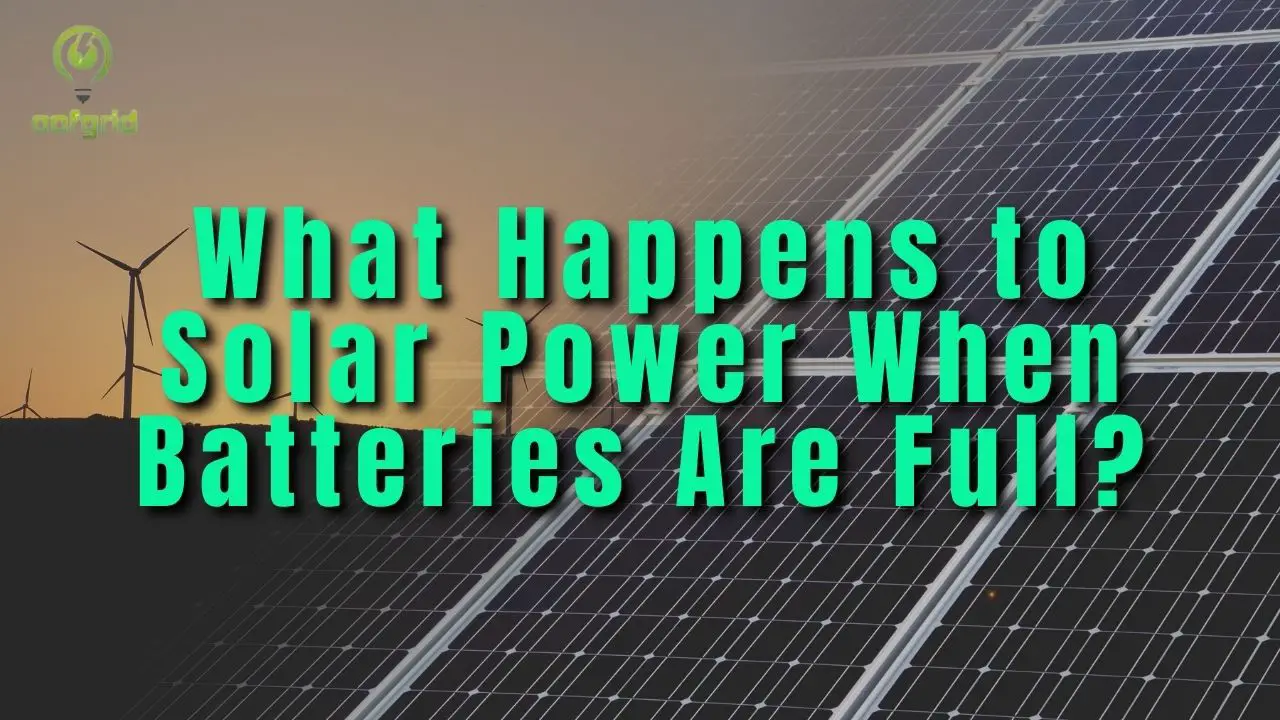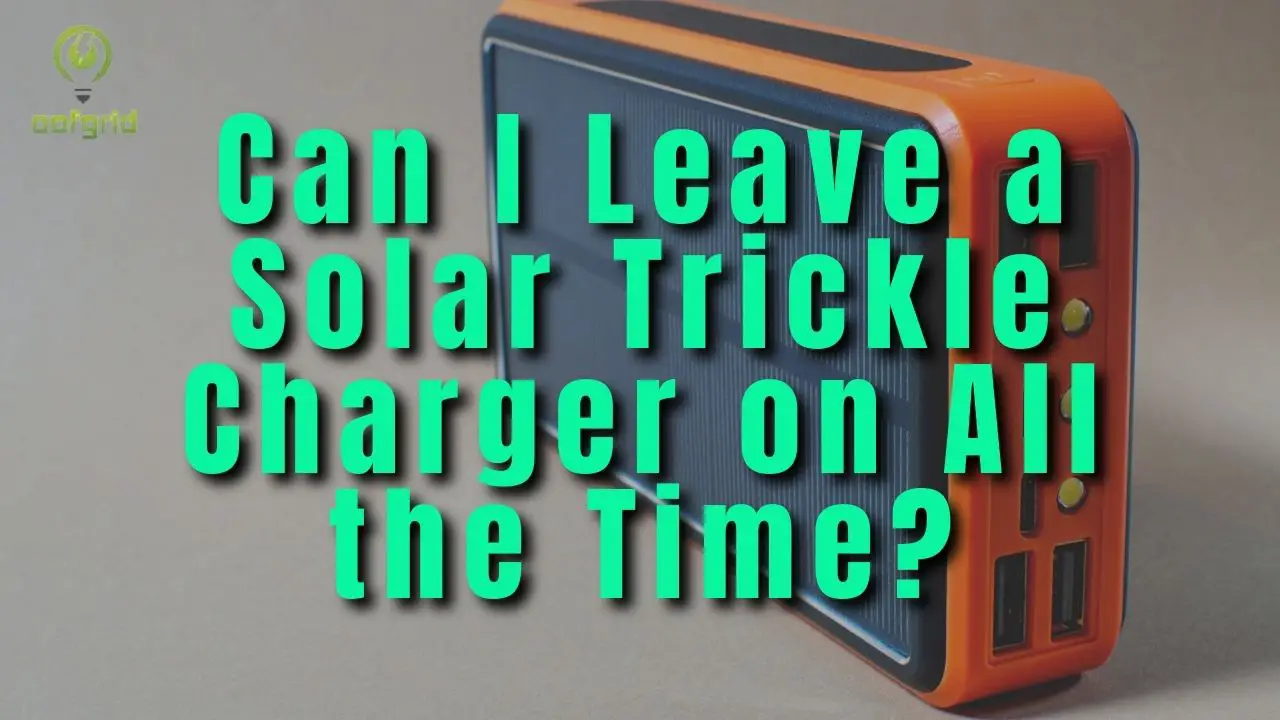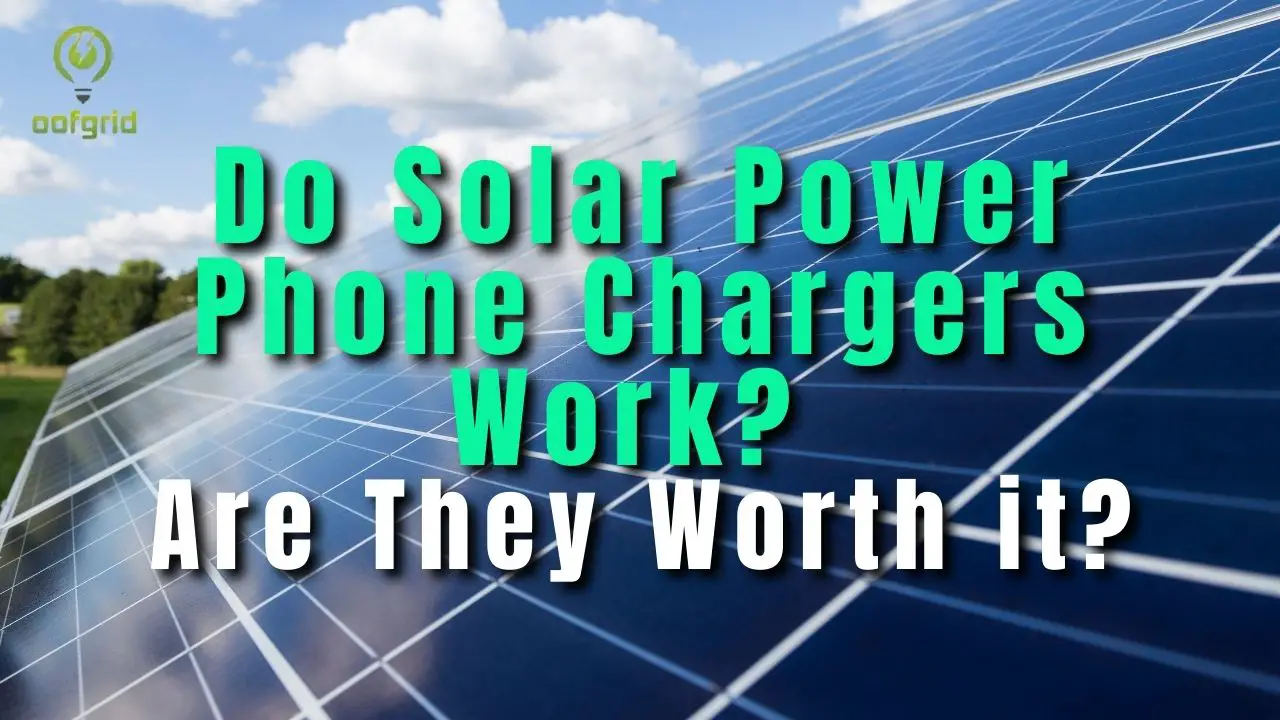When you set up a solar system the normal setup is a panel connected to a charge controller connected to a battery to store the power.
Connecting a solar panel directly to a battery will almost certainly result in too much voltage being passed from the panel to the battery. When excess power is passed from a solar panel to a battery that excess power becomes heat. Heat will quickly break down the battery. By using a charge controller you can extend the life of the batteries.
Solar panels can be connected directly to a battery, and they will charge the battery. Without a charge controller, the voltage of the solar panel will go directly to the battery. Depending on the voltage of your battery the overcharging will shorten the life of your battery and cost you more money over the life of the product.
Overcharging is not only inefficient, but it is also dangerous. Overcharging batteries can cause them to overheat and explode.
Connecting a solar panel directly to a battery means that all the power generated by the panel is going directly to the battery. The current supplied by a panel varies throughout the day, depending on the weather and the angle of the sun.
Charge controllers are a device that sits between a solar panel and the battery. It controls how much power is going to the battery to charge it.
If you do not have a charge controller between the panel and the battery then the overcharging of the batteries will shorten their lives.

Contents
What is a Charge Controller?
A charge controller is like a valve on a hose, it controls how much power flows from the solar panel to the battery. It allows the battery to charge at peak efficiency.
A standard 12-volt battery cannot receive more than 13.7 volts without beginning to overheat. The charge controller takes power from the 20-volt solar panel and makes sure that no more than 13.7 volts get through.
Charge controllers have become significantly less expensive over the years and you can buy a quality charge controller for less than $40. There are models that are less than $15 dollars that have very good reviews.
When you are building a solar system the most expensive part of your build will likely be your batteries. They are the holding tank for the power generated by your solar system. If your batteries fail, you will be without power.
An inexpensive charge controller protects your batteries.
Do I Really Need a Charge Controller?
A charge controller protects your batteries from overcharging. Overcharging severely shortens the life of your batteries.
A charge controller is one of the least expensive parts of your solar setup, and it should always be used when charging your batteries.
There are charge controllers available for as little as $15 for a basic charge controller. If you are relying on a solar system for your electricity, using a panel and battery without a charge controller is very foolish.
If you are using a smaller portable solar charger, the panels are designed to be stand-alone devices, they can be used to charge small batteries so that you can carry the electricity with you.
When excess energy is passed to the battery that energy becomes heat. Whenever you are charging with solar, monitor the temperature of your batteries. Heat is the biggest enemy of batteries.
How to Connect a Solar Panel to a 12 Volt Battery?
The largest cost of a solar installation is the labor, so many people choose to do this themselves.
There are lots of ways to install solar panels, but wherever they are installed they should be placed in full sun, even a small amount of shade will dramatically decrease their efficiency.
When the panel is installed and secure, connect the panel to a charge controller.
If you are planning to connect your solar panel to a 12-volt battery, you need to order a charge controller. Connect the panel to the charge controller after the panel has been installed and secured.
The charge controller will be attached to the battery bankl and sit between the solar panel and the battery.
This is a great example of a simple, portable system:
12-volt batteries should be receiving 12 volts of power from the solar panel. There are ways to wire mismatched solar panels and batteries, but it requires extra hardware, especially charge controllers.
While batteries come in different sizes, so do solar panels, so if you are connecting a 24-volt panel to a 12-volt battery you will need more complex connections and controllers.
I love this educator because she often demonstrates the things she is teaching in her videos. Here she shows how you may need to use 2 charge controllers to connect mismatched solar panels and batteries.
Why is Overcharging Bad for Batteries?
So, I knew that overcharging was bad, but I wanted a bit more information, so I called my dad. He is a retired electrician. He spent a good chunk of his career working on large battery banks that were used to keep power flowing to secure government computers.
He told me a crazy story.
I asked him why overcharging is bad for batteries.
Overcharging batteries is bad for batteries because when too much voltage is passed to a battery, it starts to heat up. When a battery heats up too much the battery acid starts to break down and stop working. If batteries are heated too much or frequently over time they can explode.
Yep, they explode.
A 12-volt battery cannot take more than 13.75 volts, check the specs for your batteries and do not exceed the charging voltage.
He once got a batch of batteries from a company that was shutting down, the batteries were not performing optimally, and they started to overheat.
He got a call from a coworker who told him about the problem. He asked them to go in and flip the breaker, to stop the flow of energy to the batteries.
This experienced coworker refused because he was sure they were going to explode. Hot battery acid has a smell, and this guy could smell the acid breaking down.
My dad had to drive the 40 minutes to the base, rush in like McGiver and flip the switch before the whole building blew up.
He said it smelled very strong and he had to hold his breath to enter the room. (My dad really isn’t one for safety precautions).
Totally true story. I was very glad I called to ask this question.
Do I Need a Charge Controller for my Grid Tied System?
If your solar setup does not include batteries you do not need a charge controller. A charge controller sits between the solar array and the batteries. In a grid-tied system, the solar array is connected to an inverter and a meter. When the sun hits your panels the inverter converts the DC to AC and the solar energy powers your house directly.
These systems do not use batteries because any power produced by your panels that is not used at your house is diverted to the larger power grid.
When your panels are not producing power, you draw from the grid.
The goal of the system is for you to be able to divert enough power to the grid during peak sun to cover the cost of any power you draw from the grid. Basically, free power.
Do I Need a Charge Controller for my Off Grid System?
While a grid-tied system does not store any power in the home where the panels are installed, an off-grid system requires a large battery bank.
All the power generated by the solar panels is used to charge the batteries.
A charge controller will ensure the longest life possible for your batteries. If your batteries start to overcharge, they will start to break down.
Batteries used in most solar setups are wet cell batteries, they are sealed containers that contain battery acid.
My dad worked for many years with wet cell batteries, and he used to come home with holes in his shirts from drops of battery acid.
The liquid in these batteries breaks down quickly with heat.
When the batteries are charged at inappropriate voltage levels the excess energy becomes heat and begins to break down the batteries.
If the batteries are weak enough they can even explode.
The only way to keep the batteries performing optimally is to control the voltage being passed from the panel to the battery with a charge controller.
Conclusion
You can certainly connect a solar panel directly to a battery, but it is not recommended. The power generated from a solar panel is more than a battery can handle and will cause the battery to overheat and in some cases explode. To avoid injury, and damage to your personal property, always use a charge controller with your solar system setup.





